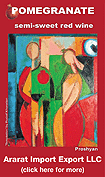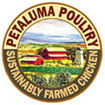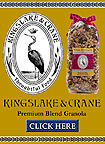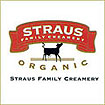New Study of Aspartame Research Reaffirms Safety,
Even Among Heaviest Users
Review by 8 International Experts Is the Most Comprehensive
Ever
NEW
YORK, Sept. 11 /PRNewswire/ -- A new review of aspartame
research -- the most comprehensive ever conducted -- once again
has concluded the widely used sugar substitute is safe, even among
its heaviest users.
The review, "Aspartame:
A Safety Evaluation Based on Current Use Levels, Regulations,
and Toxicological and Epidemiological Studies," published
in the September issue of Informa Healthcare's Critical Reviews
in Toxicology (Volume 37, Issue 8, pp. 629-727), also identified
serious flaws in two recent European studies that claimed to find
a link between aspartame and cancer in rats.
The 98-page, peer-reviewed
evaluation was carried out by a panel of eight internationally
recognized scientists. It considered more than 500 studies, articles
and reports conducted over the last 25 years on the health effects
of aspartame, including unpublished works submitted to the Food
and Drug Administration and the Department of Health and Human
Services for regulatory approvals of the ingredient. The study
was conducted in a manner that is consistent with the Food and
Drug Administration process for evaluating new food ingredients
before entry into the marketplace.
"The weight of existing evidence
is that aspartame is safe at current levels of consumption...,"
the experts concluded. "No credible evidence was found that
aspartame is carcinogenic, neurotoxic, or has any other adverse
effect on health when consumed even at quantities many times the
established ADI [Acceptable Daily Intake] levels."
As part of its review, the panel applied
the most recent food consumption survey information to estimate
current aspartame intake. Despite its popularity, the average
among those who use the sweetener is very low, only 4.9 milligrams
per kilogram of body weight daily, a fraction of the government-approved
upper intake level of 50 milligrams per kilogram per day.
"Because aspartame use has increased
dramatically over the years, the panel made a special effort to
review the most up-to-date consumption data," said Bernadene
A. Magnuson, PhD, a University of Maryland food toxicologist who
coordinated the panel for the Burdock Group of Vero Beach, Florida.
"It found that today's use, even by high users in special
subgroups, remains well below acceptable levels." The studies
reviewed by the panel looked at aspartame's potential effect on
behavior, reproductive health, neurological functions, and cancer
and tumor development. They covered individuals with Parkinson's
disease and diabetes; those suffering from allergies, depression
and seizures; and various categories of children, including those
with hyperactivity or claiming to be sensitive to sugar.
"The suggestions of adverse effects
from aspartame consumption have absolutely no credible scientific
basis," said William J. Waddell, MD, Professor and Chair,
Emeritus, Toxicology, at the University of Louisville School of
Medicine, who chaired the panel. "It is safe for all population
groups."
The panel also considered recent highly
publicized studies by the Italian Ramazzini group that purported
to show a link between aspartame and cancer in rats. "Multiple
expert evaluations, as well as our work, identified numerous flaws
in the Italian studies," said Magnuson. "After careful
review, our panel remains completely confident in aspartame safety."
The review panel spent 11 months looking
at past research on aspartame, which entered the food supply in
1981 and is used in more than 6,000 food products worldwide, including
most diet soft drinks and many sugar-free chewing gums.
The safety review was structured in a unique manner. Dr. Waddell,
on behalf of the Burdock Group, selected members to achieve representation
of the complete spectrum of toxicological expertise relevant to
aspartame. The identity of the sponsor, Ajinomoto, was unknown
to the chair and expert panelists throughout the conduct and completion
of the review, and submission and peer review of the manuscript.
Panelist identity also remained unknown to the sponsor. There
were no known conflicts of interest with the sponsor or potential
biases of the authors.
Other members of the expert panel were
John Doull of the University of Kansas Medical Center; the late
Robert Kroes of the University of Utrecht, The Netherlands; Gary
M. Marsh of the University of Pittsburgh; Michael W. Pariza of
the University of Wisconsin; Peter S. Spencer of the Oregon Health
and Science University; Ron Walker of the University of Surrey,
United Kingdom; and Gary Murray Williams of New York Medical College.
Their specialties, in addition to pharmacology and toxicology,
include microbiology, biostatistics, and risk assessment.
The abstract of the full report can be
accessed by going to http://informaworld.com/crtox. Edited by
Dr. Roger McClellan, Critical Reviews in Toxicology is a peer-reviewed,
international journal that provides objective analyses of crucial
topics related to the mechanisms, responses, and assessment of
toxicants, ingredients, pharmaceutical products, food ingredients
and environmental agents. Informa Healthcare is a leading provider
of medical and pharmaceutical science research with offices in
New York and London (www.informahealthcare.com). For further information
on ordering bulk reprints of the article, contact Neil Adams (neil.adams@informausa.com).
PR Newswire Association LLC, Distribution
Services Department, 810 7th Avenue, New York, NY 10019 |











